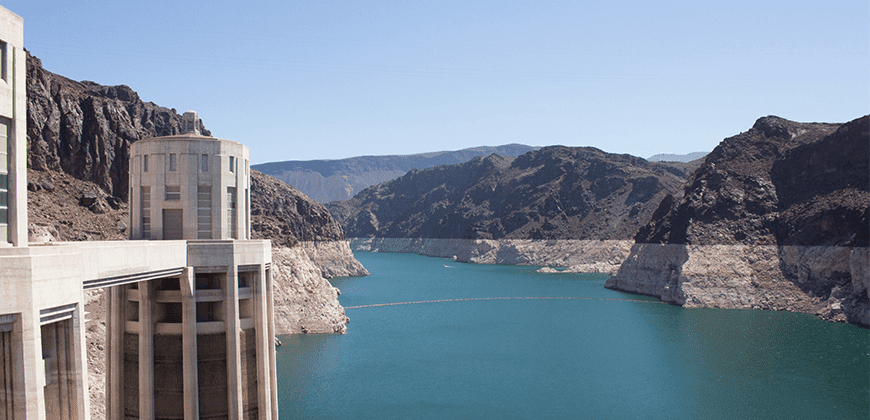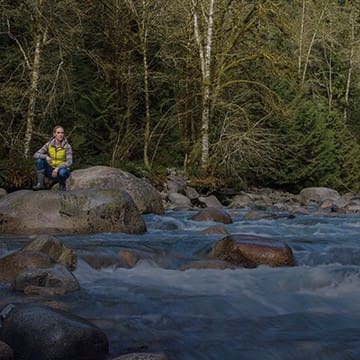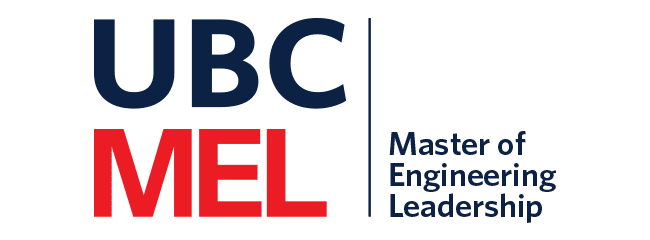Spotlight: Susan Baldwin on Water Challenges

Water Challenges
By Susan Baldwin, former Program Co-Director of UBC’s Master of Engineering Leadership in Integrated Water Management.
It’s easy for those of us living in urban environments to be unaware of the enormous water challenges faced by industry, particularly industries like mining and oil and gas that are significant users of water.
As companies work to reduce their water use and meet evolving environmental regulations, there are many opportunities for engineers to develop innovative solutions that reduce the amount of water required for operations, prevent that water from being contaminated, better treat the water on site before it’s discharged and reuse that water as much as possible.
I’ve worked extensively on water management and treatment at mine sites, which are areas in which engineers can apply their wide-ranging knowledge to develop innovative solutions. Passive treatment approaches – such as constructive wetlands, for example – make use of the natural biological and geochemical processes already happening on a mine site to remove and secure potentially harmful chemical compounds from the water. At the other end of the spectrum are active and highly engineered processes. This high-tech infrastructure comes with added costs, yet is often seen as more reliable because it uses quantifiable measures and controls.
In most situations, engineers are asked to find approaches that lie between these two extremes – solutions that leverage natural processes but impart some control through an active, managed system.
Engineers can complete their undergraduate degree without having taken a biology class, yet engineers working in water management benefit from an understanding of biological processes and the role of microorganisms in water treatment and remediation. When the tailings pond at the Mount Polley copper and gold mine in central BC breached in August 2014, I worked with a group to sample the surrounding site to understand the impact of the deposited material on soil microorganisms. Those with beneficial characteristics were found in the impacted environment. To allow remediating processes to occur we, as engineers, need to devise ways to encourage the growth of these microorganisms.
This is just one example of the wide-ranging technical knowledge that engineers must bring to their work in this field, particularly in project management roles.
Although water engineers aren’t expected to be specialists in all areas, they do need to know what types of expertise will enable a project to succeed. Their role is to see the big picture and be able to integrate all of these specialized areas.
The Master of Engineering Leadership in Integrated Water Management was designed to meet the needs of these types of professionals. The 12-month full time or 24-month part time program gives students a broad working knowledge of many aspects of water treatment, use and management. Depending on their academic background and professional experience, students may be learning material that is new to them. They can also take three electives, allowing them to explore specific areas of specialization. Taken together, these classes deepen our students’ technical skills.
But what sets our program apart is that these graduate-level engineering classes are complemented by business classes taught through UBC Sauder’s Robert H. Lee Graduate School. These courses make up about 30 percent of the curriculum, and by providing a foundation in business knowledge, they enable our students to develop the strategic, collaborative and interpersonal skills needed to be successful leaders and project managers.
UBC also offers the MEL in sector-specific programs, including Clean Energy Engineering, Dependable Software Systems, High Performance Buildings, Naval Architecture and Marine Engineering, Sustainable Process Engineering and Urban Systems. The MHLP is additionally offered in sector-specific programs, including Clinical Education and Seniors Care.
Integrated Water Management
Apply your technical and leadership skills in developing sustainable water management solutions.
Read MoreFeatured Faculty and Staff

DR. BARBARA LENCE
Featured Faculty and Staff

DR. BARBARA LENCE
Integrated Water Management
Apply your technical and leadership skills in developing sustainable water management solutions.
Read More
